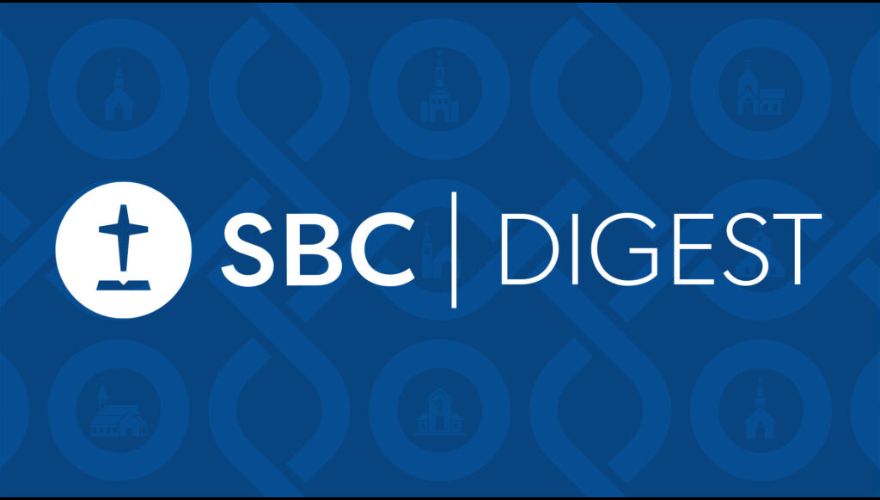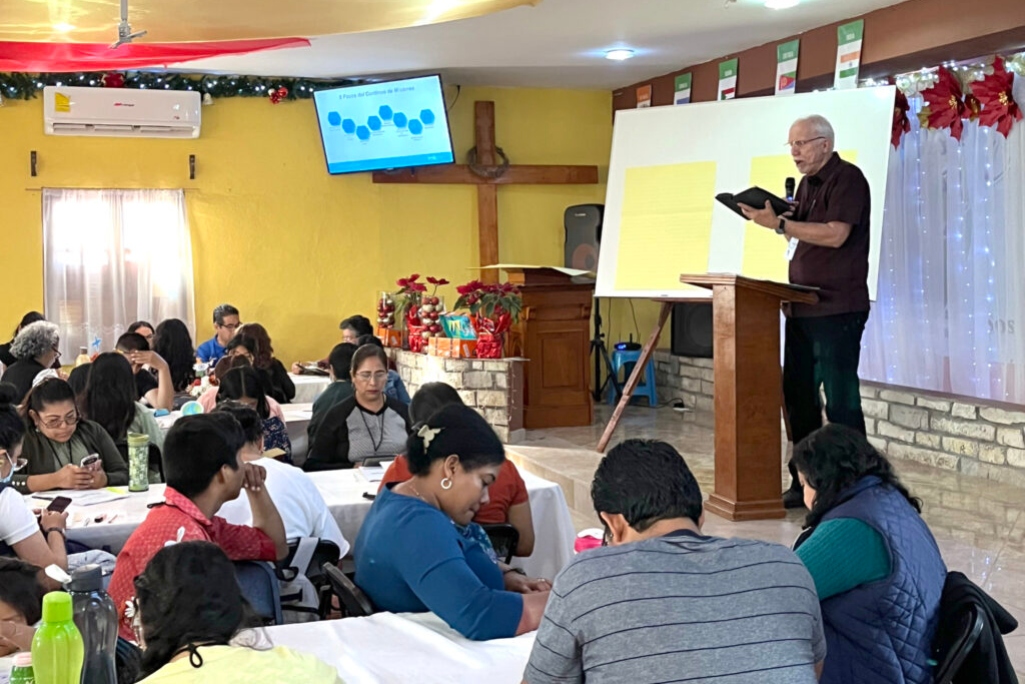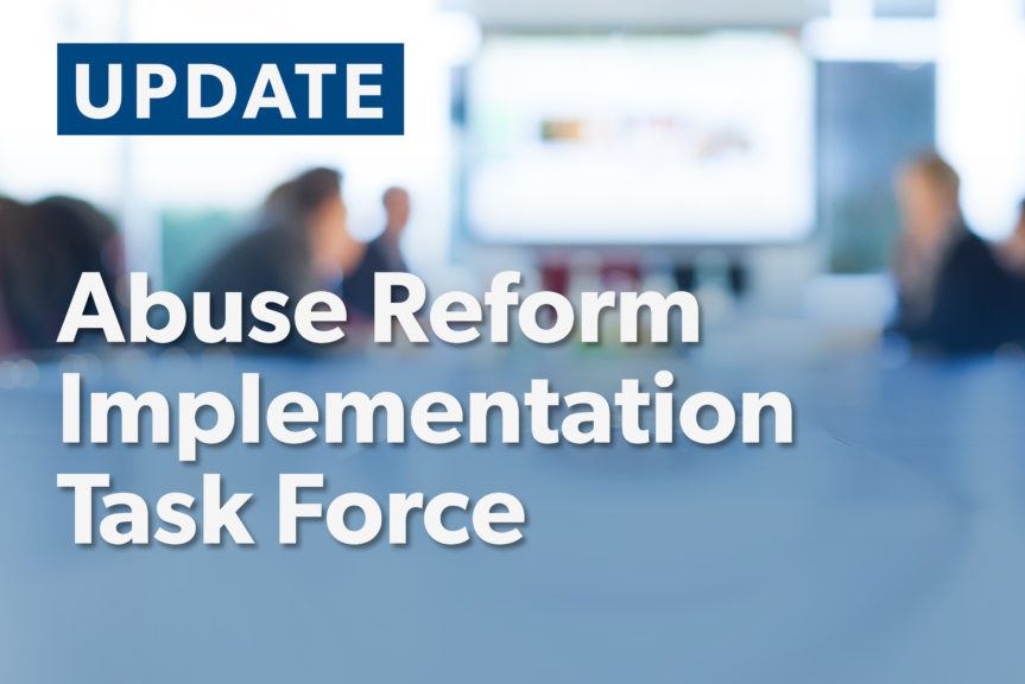
Mission:Dignity Sunday June 23
By Susan Ervien, GuideStone
DALLAS (BP) — In the New Testament, we find these words: “Pure and undefiled religion before God the Father is this: to look after orphans and widows in their distress …” James 1:27 (CSB).
On June 23, Southern Baptists will again have the opportunity to honor unsung heroes of the faith — namely, retirement-aged Southern Baptist pastors, workers and their widows who served and abundantly blessed others during their years of ministry. Widows represent 60% of recipients served by Mission:Dignity.
Widows are typically some of society’s most vulnerable members, which is why Christ calls His bride to step into the gap.
The widows supported by Mission:Dignity served in places where little, if any, was contributed to retirement, much less life insurance. Many of these women face hardships alone, including the natural consequences of aging or uncertain diagnoses and terminal conditions after the husband passes away unexpectedly or succumbs to a prolonged illness.
Add our nation’s recent struggles with inflation, and we have a community of women in desperate need after faithfully serving the Lord. They deserve the honor of being cared for in their later years.
It is pure joy at Mission:Dignity to answer this call to arms for widows like Brenda Collins of Trussville, Alabama. Brenda and her late husband, Jim, served the Lord in churches all over Arkansas, Missouri and Oklahoma for 51 years.
“What I really loved the most was just being by his side,” Brenda recalls. “And when my children got older, I was able to go with him. I made every hospital visit. I made every home visit. We were connected at the hip. And so, God called us both into the ministry. He called Jim to preach and to be a pastor. And he definitely called me to be a pastor’s wife.”
Stories like Brenda’s highlight the importance of Mission:Dignity.
“After Jim’s death, I got a call from Mission:Dignity,” Brenda says. “And I have to tell you that I honestly was surprised, but it was such a comfort and blessing to have them call me. Mission:Dignity not only provides security and peace of mind financially, but more importantly than that, Mission:Dignity feels like a friend.”
“At GuideStone, our mission is to enhance the financial security and resilience of those who serve the Lord,” GuideStone President Hance Dilbeck said. “We hear from our recipients weekly that these honorariums provide them with additional security — and dignity — in their daily lives. I’m thankful we can join churches across the Southern Baptist Convention to support these retired SBC pastors and widows.”
The Southern Baptist Convention (SBC) has set aside the fourth Sunday in June to celebrate and raise a special offering for Mission:Dignity. Churches, Sunday school classes and other groups can order or download free Mission:Dignity Sunday materials from GuideStone or give at MDSunday.org. The materials are not dated, so churches can use them at any time of the year.
“Every day, we hear from these dear soldiers of the cross striving to finish well with the dignity they deserve,” said Aaron Meraz, director of Mission:Dignity. “With 100% of donations going directly to recipients, Mission:Dignity has financially assisted widows like Brenda with monthly needs, eyeglasses, hearing aids, medical bills and even house repairs, as well as care and support.”
Visit MDSunday.org for more information on this vital ministry from GuideStone.
New overtime rules for salaried employees may impact churches
By Mike Whitehead, Missouri Baptist Convention
WASHINGTON — The U.S. Department of Labor has adopted a new rule effective July 1, 2024, that increases the salary thresholds required to exempt a salaried executive, administrative or professional employee from federal overtime pay requirements.
Pastors and some ministers may continue to be exempt from overtime rules, but the new rule may still impact a church’s payroll for non-ministerial program and support staff. Churches and other non-profit organizations may now be required to pay overtime to employees who were formerly exempt from overtime, or they may be required to significantly increase salaries in order to maintain “exempt” status from overtime pay rules — unless pending court challenges block the rule.
You can read the administration’s press release announcing the new rule here and the text of the new rule here.
Effective July 1, 2024, the salary threshold will increase from $35,568 to $43,888 annually, based on the methodology used by the prior administration in the 2019 overtime rule update. The rule’s new methodology will take effect on Jan. 1, 2025, at which point the threshold will increase again, to $58,656.
Possible action steps
- Budgeting and Staffing: Churches and ministries may need to re-evaluate their budgets and staffing models. Some salaried employees who were formerly not paid overtime may now be eligible for overtime pay, which could increase payroll costs.
- Review Salaries and Job Descriptions: Compare current salaries and job descriptions against the new thresholds and duties tests.
- Employee Classifications: Review the classification of employees to ensure they meet the criteria for exempt status under the new rules. Misclassification can lead to legal issues and financial penalties.
- Time Recordkeeping: Consider keeping time records of hours worked by all salaried employees who are close to the new salary thresholds. This is essential for compliance and for addressing any disputes that may arise.
- Consult Legal or HR Experts: Engage with legal or human resources professionals to ensure your organization is fully compliant with the new rules.
For detailed information and resources, visit the following websites:
- U.S. Department of Labor
- National Council of Nonprofits
- Society for Human Resource Management (SHRM)
Be aware that litigation is still pending that could make changes in the rule or its effective dates. You may periodically check some legal sites or accounting websites for updates.
(EDITOR’S NOTE — Mike Whitehead is general counsel for the Missouri Baptist Convention. This article is not legal advice but is provided for education and information only.)


